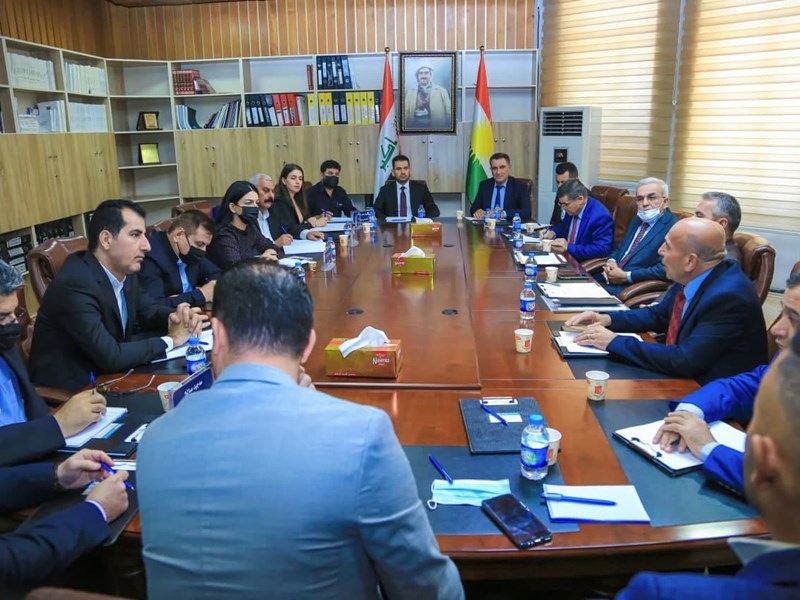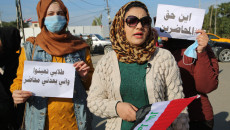State offices of the Kurdistan regional government KRG in Kirkuk seek support of Kurdistan parliament to overcome its admin and financial challenges.
Most of KRG ministries have established offices in Kirkuk and the disputed territories following the toppling of Saddam Hussein regime in 2003.
The Kurds were controlling the disputed territories up to 2017 when Iraqi government declared victory over the so-called Islamic State in Iraq and Syria ISIS.
Sherzad Kake, director of Kurdish education in Kirkuk, said in a meeting with Kurdish parliament's committee for beyond the KRG territories their main challenge is lack of adequate tutors and buildings.
Kake's directorate is different than directorate general for education in Kirkuk run by Baghdad- based ministry of education. "Our main problems are lack of sufficient number of teachers for the Kurdish schools and final exams."
"Our main problems are lack of sufficient number of teachers for the Kurdish schools and final exams."
The KRG has employed over 8,000 teachers for the schools teaching curriculums in Kurdish in the disputed regions. In the last seven years, the KRG could not pay salaries on time due to standoff with Baghdad over oil exports and domestic revenues.
The KRG-employed teachers argue that Baghdad-paid teachers receive full salaries on time while the KRG deducts 21% of their salaries.
The Kurdish schools in Kirkuk and the disputed territories blame Baghdad for class 9 and 12 final exams as in some cases questions cover chapters skipped or not cover by the Kurdish teaching schools.
Kake called for a committee by KRG ministry of education to coordinate with its Baghdad counterpart and the parliament to support the efforts.
Kurdish families in Kirkuk are voluntarily taking out their pupils since several years as they believe Arabic is the main language in the country and the pupils will face difficulties in the universities teaching in Arabic and English. Besides, their chance of employment will be higher.
"We asked them to hire lecturers for the Kurdish schools to fill in the teaching staff gap especially in Daquq and Dubiz," Kake added.
"We have also shortage in school buildings and equipments. We asked the parliament to address the KRG in this regard."
The northern oil-rich city of Kirkuk, Iraq's second largest oil reserves, is ethnically a mixed province for 1.2 million Kurds, Arabs, and Turkmen. It has long been at the center of disputes between Baghdad and the autonomous Kurdistan Regional Government KRG.
Kurds, whom controlled Kirkuk up to October 2017 when the so-called Islamic State ISIS was ousted by Iraqi forces, wanted Kirkuk, 238 kilometers north of Baghdad, to become part of the Kurdistan region through a referendum for independence, which has been opposed by the Arab and Turkmen populations.
The disputed territories between Erbil and Baghdad extend from Khanaqin in the east on the border with Iran to the oil rich city of Kirkuk heading to the west of Mosul in Shingal, home to the Ezidi ethno-religious minority, on the border with Syria.
Khalil Rahim, in charge of Foundation of Anfal and Martyrs' in Kirkuk said they explained the difficulties of their foundation and the families of the Anfal and martyrs face in Kirkuk.
"The members of the parliament pledged to do their best to end these problems," Rahim said.
"The members of the parliament pledged to do their best to end these problems," Rahim said.
Directors of KRG offices and directorates in Kirkuk reported their problems to the Kurdish parliament committee and later met the Kurdish parliament speaker and deputy speaker.
The committee of Kurdish territories beyond the KRG said in a statement "As we did in the past, we make our utmost efforts with the parliament presidency to solve the problems related to the KRG."
"We ask the KRG to intensify its negotiation meetings to normalize life in these areas," the statement published on Kurdistan parliament portal.
The five oil fields of Kirkuk have produced over three million barrels in May for 199 million Dollars while in April it has pumped only 2.86 million barrels making $177 M, Iraqi ministry of oil said.






